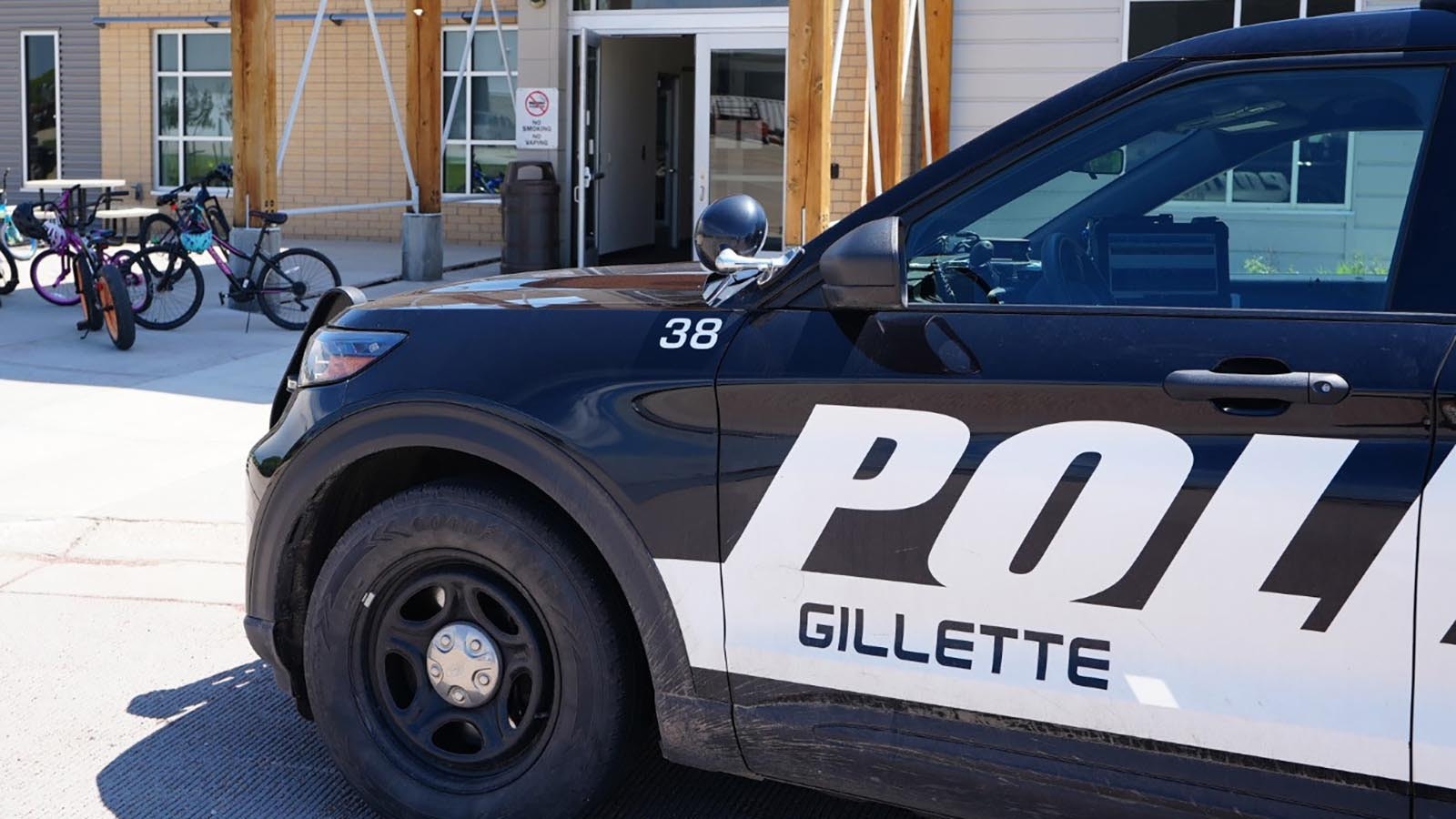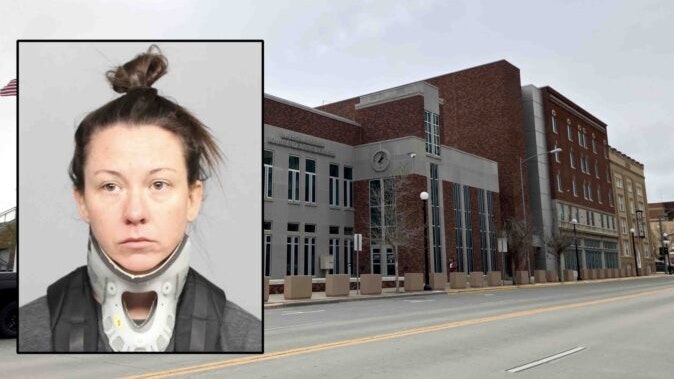Half of the accusations a former Campbell County Public Library director has leveled against a family that accused her of “grooming” local children are based on enough good logic to survive the next court phases, a federal judge ruled Friday.
Terri Lesley, who directed the Campbell County Public Library system until the library board fired her in July 2023, sued a local family — Hugh, Susan and Kevin Bennett — later that summer in the U.S. District Court for Wyoming.
Half her claims, such as “injurious falsehood,” didn’t link her allegations with the proper laws; but the other half of her claims deserve an exchange of evidence and the chance to go before a jury, U.S. District Court Judge Alan B. Johnson ruled in an order he signed Thursday and filed Friday in the federal court.
Lesley’s long and public war with the Bennett family started in June 2021, when the library advertised “Pride and Rainbow Book Month” and LGTBQ-related books for teens to access, according to court documents in the case.
The Bennetts “began a campaign to publicly discredit” Lesley and push her to remove books with LGBTQ content from the library, wrote Johnson in his order.
They described Pride month as “immoral” and part of “the ground game of an attempt to destroy our culture and country,” the order adds.
Going Public
In the following month, the Bennetts and some county officials coordinated to prevent a magic show by a transgender performer that was scheduled to happen at the library. The magician received threats online and by phone from other, unnamed people, and canceled the performance.
The Bennetts were public with their criticism of Lesley on a billboard and in a small print publication run through Hugh and Susan’s business, court documents say.
The detractors also reported Lesley to the Campbell County Sheriff on claims that Lesley was peddling obscenity to kids, which is a crime in Wyoming.
A special prosecutor asked to oversee the case concluded that the books — including one that gives instructions on how to perform hand sex and another that shows nude cartoon characters in full sexual copulation with their genitalia depicted — were not obscenity.
But even if they were, Wyoming law exempts librarians from prosecution under that law, the prosecutor added.
In July 2023 and under a library board that saw significant turnover amid the outcry, Lesley was fired.
The Fallen Claims
Lesley’s lawsuit claims that didn’t survive are:
• “Injurious falsehood,” for which Lesley didn’t link the things she endured to Wyoming law.
• A “Section 1983 (1)” federal-law claim that only applies when people try to bully others out of federal, not state offices.
• An “abuse of process” claim that didn’t survive because the Bennetts weren’t abusing any law processes when, in 2021, they reported her to the Campbell County Sheriff for allegedly peddling obscene materials to children.
The Living Claims
Johnson made some significant findings after an “elaborate research project” into parts of the1871 Ku Klux Klan Act, which isn’t fully contoured on which classes (besides racial categories) of people it protects.
The act gives people a mechanism to sue those who conspire to deprive them of rights due to being part of a “class of persons;” and those who conspire to hinder authorities from extending equal protection of the law to others.
While his reasoning was indulgent to Lesley’s claims (as civil case orders are required to be at this juncture in a lawsuit), Johnson concluded that Lesley may have merit on these allegations, but that the “discovery” or exchanged evidence will either support or cripple that supposed merit.
In reaching these conclusions, Johnson blazed a new trail in Wyoming’s federal legal realm.
Lesley isn’t claiming that she was discriminated against for being a woman, but she’s saying she was discriminated against for advocating for the LGTBQ community, and she alleges that community is a “class” under federal law.
And yet, a 2020 U.S. Supreme Court ruling in Bostock v. Clayton County links one’s status as being part of a sex to one’s sexual orientation or gender identity, at least for the purposes of workplace discrimination laws.
Mindful of this, Johnson noted that the 10th Circuit Court of Appeals, which is the umbrella authority over Wyoming’s federal court, “has yet to make a specific finding on whether sex is a class.”
But other circuits have called for Ku Klux Klan Act interpretations to protect groups of people that form “a discrete and insular minority,” the judge wrote.
And in the wake of Bostock, the 10th Circuit has required courts to treat discrimination against LGBTQ people with a special critique, called “intermediate scrutiny,” he wrote. That follows a July 2024 holding in which the 10th Circuit, like the Bostock court, equated gender identity and sexual orientation discrimination with sex discrimination.
“Based on this rather elaborate research project,” wrote Johnson, Lesley can wage a claim that the Bennetts were trying to discriminate against a class of people.
For Being Friends With Them
Though not part of the LGBTQ community, Lesley asserts throughout her lawsuit complaint that it was her advocacy for LGBTQ people and causes that invited the Bennetts’ alleged discrimination.
That logic looks adequate at this stage too, Johnson wrote.
That’s because both the U.S. Supreme Court and the 10th Circuit have defended people who were discriminated against for defending African Americans — under the Ku Klux Klan Act — and there’s no support in the law to “require an arbitrary line to be drawn between advocates of racial groups and advocates of other protected classes,” the judge wrote.
We’ll See
As another component of the Ku Klux Klan Act, Lesley also claims that the Bennetts encroached on her official duties and worked with government authorities like county commissioners and library board members to do so, ending with her being fired.
This claim is somewhat tenuous, since Lesley seems to wage it by invoking the 14th Amendment to the U.S. Constitution, which forbids states from violating certain fundamental rights.
But Lesley didn’t sue the state or state authorities. She sued a family of private citizens.
Still, Johnson added, Lesley appears to have been “harassed and fired” by government officials, “which she alleges was done with the help of the Bennetts.”
The evidence in this case, rather than an early-phase judgment call, will show whether the Bennetts were so close with government officials that they acted in tandem with the state, wrote Johnson. He added that that’s why he decided to keep that claim alive “at this stage of the proceedings.”
Lesley’s emotional distress claim is also alive, Johnson ruled, saying there may be evidence she suffered “outrageous” conduct.
Clair McFarland can be reached at clair@cowboystatedaily.com.





